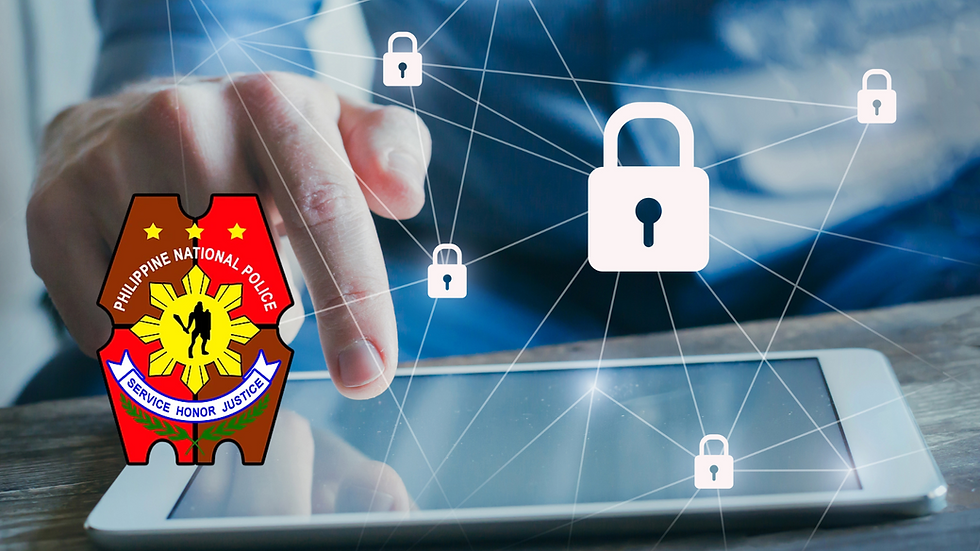Why Cyber Awareness Training for Law Enforcers Can’t Wait Any Longer
- DGT Blogger

- Jul 21, 2025
- 2 min read

The recent cybersecurity awareness session attended by 300 police officers in Aurora is not just a routine government initiative it’s a clear signal that cyber defense is now a front-line responsibility for law enforcers. As the Department of Information and Communications Technology (DICT) continues to push for digital inclusion across public institutions, this monthly training marks a critical shift in how we define public safety in the digital era.
DICT-Aurora's efforts underscore an undeniable truth: as government operations move deeper into digital platforms, law enforcement officers must be equipped not only with traditional tools, but with the competencies to identify, prevent, and respond to cyber threats. These skills are no longer optional. They are mission-critical.
John Erick Delos Reyes, DICT-Aurora’s provincial head, put it simply cybersecurity is now a core component of public safety. Without it, even the most well-intentioned programs risk being undermined by vulnerabilities that malicious actors are eager to exploit. The training’s focus on digital hygiene, threat awareness, and real-world case scenarios reveals an important lesson: cybersecurity isn't just about firewalls or complex systems. Often, it begins with awareness, behavior, and individual responsibility.

But while the Aurora session is a promising step, it also reveals the magnitude of the challenge ahead. If only a few hundred officers are currently being trained each month, thousands more across the country remain exposed, along with the systems they are tasked to protect. The acceleration of cybercrime fueled by AI-driven attacks, phishing campaigns, and infrastructure vulnerabilities demands that training efforts be scaled rapidly and comprehensively.
Moreover, government efforts like DICT’s Free Public Internet Access Program and Digital Transformation Centers will succeed only if the foundation is secure. As we enable communities with connectivity, we must also embed cybersecurity at every layer from policy to practice, and from national agencies down to local stations.

This is where trusted third-party expertise plays a vital role. Managed Security Service Providers (MSSPs) like Directpath Global Technologies (DGT) offer law enforcement and government institutions the added edge needed to stay ahead of cyber threats. Our capabilities in Mobile Threat Defense (MTD), Extended Detection and Response (XDR), Vulnerability Assessment and Penetration Testing (VAPT), SOC2, VRMaaS, Web Application Firewalls (WAF), and virtual CISO (vCISO) services are designed to build strong, proactive defenses.
We also provide Security Awareness Training programs to help organizations develop a culture of vigilance ensuring that both leadership and frontline staff understand the evolving nature of threats and how to respond effectively.
With an advanced AI division, DGT can tailor these solutions to fit the unique environments of public institutions enhancing not only cybersecurity, but also data efficiency, risk visibility, and strategic resilience.
Cybercrime doesn’t wait, and preparedness can't be selective. What’s happening in Aurora should serve as both a model and a wake-up call: the frontline of public service now includes the digital battlefield, and we must prepare accordingly. Source: Philippine Information Agency
.png)


